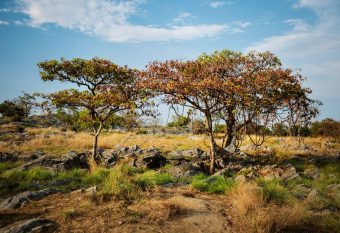
The Cerrado – a tropical savannah region in Brazil that occupies an important place in the world thanks to its biodiversity – has been in great jeopardy in recent years by the development of agriculture.
Data from the World Economic Forum (WEF) show that this region was recognized as having a great agricultural potential ten years ago. Since then, it has been the centre of the cultivation and global export of soybeans, corn, sugar cane and beef from Brazil. Moreover, the Cerrado has a 60 per cent share in the total agricultural production in this country.
All this led to the degradation of this region, due to repurposing the land for agricultural activities. The problem has grown a lot, as the Cerrado is the most biodiverse savannah in the world and also the second-largest biome in Latin America. More precisely, it is home to about five per cent of all plant and animal species on the planet. Furthermore, as a reservoir for 14 per cent of Brazil’s fresh water, the Cerrado is critical to the security of water supplies.
In 2022, the world media reported about deforestation taking place in the Cerrado, which increased by over 20 per cent in just one year. New data show that in 2023, about 7,800km2 of land was converted into agricultural land, which is a 40 per cent increase compared to the previous year. As a result of such activities, half of the original vegetation has been lost so far.
More:
- DEFORESTATION CONTRIBUTES TO INCREASED MERCURY POLLUTION – AFFORESTATION REDUCES IT
- COMMISSION WELCOMES AGREEMENT BETWEEN EUROPEAN PARLIAMENT AND COUNCIL ON NATURE RESTORATION LAW
- COMMISSION WELCOMES AGREEMENT BETWEEN EUROPEAN PARLIAMENT AND COUNCIL ON NATURE RESTORATION LAW
Substantial water supplies, suitable temperature and rainfall are the reasons why this region is recognized as desirable for agricultural development.
In order to stop this trend, the Brazilian authorities need to introduce sustainable agricultural practices, such as regenerative agriculture, as well as using improved technology that increases yield without further conversion of land for agricultural purposes. Such practices would ensure the restoration of part of the degraded land, without reducing the yield. Brazil has to improve the policy related to the protection of autochthonous vegetation to achieve this.
Energy portal



